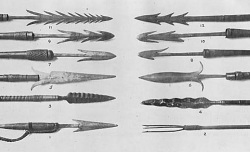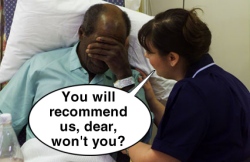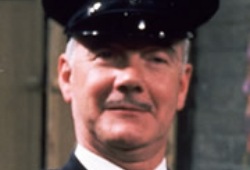 Earlier this week, Stilton published a new edition of Good Medical Practice, the lance of many prongs which he and his goons use to skewer hapless doctors. Stilton’s premise is that doctors are a lawless reckless lot, and left to their own devices they will get up to all manner of mischief. From their hidden position behind the net curtains, Stilton’s goons have perceived a new mischief: the menace of doctors who appear incognito on social media. A prong – a somewhat bent prong, since most content on social media is publicly accessible – has been added to Stilton’s lance. New explanatory guidance alongside GMP warns: ‘If you identify yourself as a doctor in publicly accessible social media, you should also identify yourself by name’. Although framed as a ‘should’ rather than a ‘must’, this bent prong has its sights clearly set. For doctors foolish enough to carry on the anonymous caper, Stilton is coming to get you: ‘You should also be aware that content uploaded anonymously can, in many cases, be traced back to its point of origin’. Dr No is not entirely persuaded that GMC goons can trace their arses from their elbows, let alone trace Dr 212.58.244.70 through the complex web of shared internet service provision; but, be that as it may, anonymous medical bloggers are up in arms.
Earlier this week, Stilton published a new edition of Good Medical Practice, the lance of many prongs which he and his goons use to skewer hapless doctors. Stilton’s premise is that doctors are a lawless reckless lot, and left to their own devices they will get up to all manner of mischief. From their hidden position behind the net curtains, Stilton’s goons have perceived a new mischief: the menace of doctors who appear incognito on social media. A prong – a somewhat bent prong, since most content on social media is publicly accessible – has been added to Stilton’s lance. New explanatory guidance alongside GMP warns: ‘If you identify yourself as a doctor in publicly accessible social media, you should also identify yourself by name’. Although framed as a ‘should’ rather than a ‘must’, this bent prong has its sights clearly set. For doctors foolish enough to carry on the anonymous caper, Stilton is coming to get you: ‘You should also be aware that content uploaded anonymously can, in many cases, be traced back to its point of origin’. Dr No is not entirely persuaded that GMC goons can trace their arses from their elbows, let alone trace Dr 212.58.244.70 through the complex web of shared internet service provision; but, be that as it may, anonymous medical bloggers are up in arms.
The Ghastly Passage
 Without so much as a hint of irony, a character in one of Susan Howatch’s novels gives orders that under no circumstances should that ghastly passage by Scott Holland be read at her funeral. The ghastly passage is Death Is Nothing At All:
Without so much as a hint of irony, a character in one of Susan Howatch’s novels gives orders that under no circumstances should that ghastly passage by Scott Holland be read at her funeral. The ghastly passage is Death Is Nothing At All:
“Death is nothing at all. It does not count. I have only slipped away into the next room. Nothing has happened. Everything remains exactly as it was. I am I, and you are you, and the old life that we lived so fondly together is untouched, unchanged. Whatever we were to each other, that we are still. Call me by the old familiar name. Speak of me in the easy way which you always used. Put no difference into your tone. Wear no forced air of solemnity or sorrow. Laugh as we always laughed at the little jokes that we enjoyed together. Play, smile, think of me, pray for me. Let my name be ever the household word that it always was. Let it be spoken without an effort, without the ghost of a shadow upon it. Life means all that it ever meant. It is the same as it ever was.”
A Dark Nurse
 Dr No’s mother has been admitted to hospital – at home. This NHS wheeze is a worthy idea, which Dr No supports. On paper, it is win-win: patients stay in their beloved homes, and the NHS saves money. In practice, it has one minor but fatal flaw. The hospital has a matron, kit in abundance, OTs, you name it, but no ward nurses. It is a hospital without nurses on its wards, and like all hospitals without nurses on the wards, it doesn’t work. Ironically, the money saved by not admitting patients to real hospitals could fund these nurses, but no one in the NHS has spotted this, and so the idea remains worthy, but doomed to fail. One supposes that were Crippen still blogging, he would have done hospital at home full justice, as he once did for another NHS corker, the hospital at night, a hospital whose defining characteristic was not an absence of nurses – rather the opposite in fact – but an absence of doctors.
Dr No’s mother has been admitted to hospital – at home. This NHS wheeze is a worthy idea, which Dr No supports. On paper, it is win-win: patients stay in their beloved homes, and the NHS saves money. In practice, it has one minor but fatal flaw. The hospital has a matron, kit in abundance, OTs, you name it, but no ward nurses. It is a hospital without nurses on its wards, and like all hospitals without nurses on the wards, it doesn’t work. Ironically, the money saved by not admitting patients to real hospitals could fund these nurses, but no one in the NHS has spotted this, and so the idea remains worthy, but doomed to fail. One supposes that were Crippen still blogging, he would have done hospital at home full justice, as he once did for another NHS corker, the hospital at night, a hospital whose defining characteristic was not an absence of nurses – rather the opposite in fact – but an absence of doctors.
Affection Love and Duty, These Three
 Dr No’s mother is a heartsink patient, and she happens to be dying. Unpalatable as they may be, Dr No says these two things as matters of fact. On one level, as a doctor, he cannot not see his mother as he would see a patient – and the hallmarks of heartsinkery are undeniably present. Although Dr No has had a hunch about prognosis for some time, it was his mother’s consultant who gave it form, in a measure of months. She is a heartsink patient, with only months left to live. Those who care to opine that heartsink is a term of derogatory abuse might also care to reflect that the term is not so much a patient label, notwithstanding the inescapable fact it is one, as a useful term from the lexicon of countertransference, under the general heading of those feelings and emotions engendered in a doctor by his or her patient. Countertransference matters: those who choose to ignore it do so at great peril, not just for the patient, but also for themselves.
Dr No’s mother is a heartsink patient, and she happens to be dying. Unpalatable as they may be, Dr No says these two things as matters of fact. On one level, as a doctor, he cannot not see his mother as he would see a patient – and the hallmarks of heartsinkery are undeniably present. Although Dr No has had a hunch about prognosis for some time, it was his mother’s consultant who gave it form, in a measure of months. She is a heartsink patient, with only months left to live. Those who care to opine that heartsink is a term of derogatory abuse might also care to reflect that the term is not so much a patient label, notwithstanding the inescapable fact it is one, as a useful term from the lexicon of countertransference, under the general heading of those feelings and emotions engendered in a doctor by his or her patient. Countertransference matters: those who choose to ignore it do so at great peril, not just for the patient, but also for themselves.
Making Friends and Family of Us All
 Paul Corrigan, whose posts show a worrying trend towards titles so long they stand as posts in their own right, has declared himself a friend of FFT, the punter-friendly friends and family test based on asking patients at or soon after discharge whether they would recommend the unit they have just left to friends and family. The test is popular with government for its apparent simplicity, resented by managers for the real extra burden it imposes, and derided by front-line staff, for whom the test might be better known as the Flying F*ck Test: the punters don’t give a FF about responding, and we don’t give a FF about the results. Although first announced last year, FF testing was back in the news last week after friendly we’re all in this together Dave announced plans to extend FF testing to general practice. The news got a cool response from senior GPs; others went further. One called the test ‘meaningless’; another dubbed it ‘trite’.
Paul Corrigan, whose posts show a worrying trend towards titles so long they stand as posts in their own right, has declared himself a friend of FFT, the punter-friendly friends and family test based on asking patients at or soon after discharge whether they would recommend the unit they have just left to friends and family. The test is popular with government for its apparent simplicity, resented by managers for the real extra burden it imposes, and derided by front-line staff, for whom the test might be better known as the Flying F*ck Test: the punters don’t give a FF about responding, and we don’t give a FF about the results. Although first announced last year, FF testing was back in the news last week after friendly we’re all in this together Dave announced plans to extend FF testing to general practice. The news got a cool response from senior GPs; others went further. One called the test ‘meaningless’; another dubbed it ‘trite’.
Full Tank of Gas
 Unbeknownst, presumably, to today’s Tory sound bite chefs, in Dr No’s youth to be full of gas had other meanings: to be full of wind, puff or bombast. These earlier meanings recurred in Dr No’s mind over the weekend, as the BBC’s news zombies trotted out Dave’s full tank of gas sound bite time and again. Presumably, like Camilla’s use of wicked, gas is meant to sound groovy. LOL! Where, Dr No wondered, was Little Nellie when you needed her? Dr No’s earlier scheme to pour sugar in Dave’s petrol rapidly gave way to an overwhelming wish to drop a match in the tank.
Unbeknownst, presumably, to today’s Tory sound bite chefs, in Dr No’s youth to be full of gas had other meanings: to be full of wind, puff or bombast. These earlier meanings recurred in Dr No’s mind over the weekend, as the BBC’s news zombies trotted out Dave’s full tank of gas sound bite time and again. Presumably, like Camilla’s use of wicked, gas is meant to sound groovy. LOL! Where, Dr No wondered, was Little Nellie when you needed her? Dr No’s earlier scheme to pour sugar in Dave’s petrol rapidly gave way to an overwhelming wish to drop a match in the tank.
The Computer Says You Have Schizophrenia!
 In his zeal to declare the NHS open for business, David Cameron announced in December 2011 that it was ‘simply a waste’ not to flog off anonymised NHS data to the pharmceutical industry, to help development of new drugs and their testing on hapless patients. Dr No has presented this somewhat tongue in cheek: the NHS does have vast amounts of data, albeit of varying quality, and there is legitimate and useful research to be done on that data. Indeed, Dr No has in the past done just such research. The red rag to Dr No’s bull was the sale of data to commercial concerns. Here, on the other side of the public-private divide, the rules such as they are, are different. We are advancing on Libor country. Profit, not patients, now rule, and it is remarkable how bendy the rules can become. Recently, the life insurance industry poked a sharp stick in GPs’ eyes by using subject access requests to obtain customer (subject) medical records, shaving the best part of £100 off the cost. It may not be illegal, but it is certainly tacky.
In his zeal to declare the NHS open for business, David Cameron announced in December 2011 that it was ‘simply a waste’ not to flog off anonymised NHS data to the pharmceutical industry, to help development of new drugs and their testing on hapless patients. Dr No has presented this somewhat tongue in cheek: the NHS does have vast amounts of data, albeit of varying quality, and there is legitimate and useful research to be done on that data. Indeed, Dr No has in the past done just such research. The red rag to Dr No’s bull was the sale of data to commercial concerns. Here, on the other side of the public-private divide, the rules such as they are, are different. We are advancing on Libor country. Profit, not patients, now rule, and it is remarkable how bendy the rules can become. Recently, the life insurance industry poked a sharp stick in GPs’ eyes by using subject access requests to obtain customer (subject) medical records, shaving the best part of £100 off the cost. It may not be illegal, but it is certainly tacky.
British Professional Medicine: RIP 2013
 Everyone, but everyone, is a professional these days. Even benefit scroungers like Dr No are professional benefit scroungers. Sociologists over the years have woven so many strands and threads through the social construct of professionalism that the term has become so broad and debased as to be meaningless. To borrow from a line attributed to the poet John Lydgate and later famously adapted by Abraham Lincoln, you can professionalise some people all of the time, perhaps even others some of the time, but you definitely can’t professionalise all people all of the time. If everyone is a professional, then no one is.
Everyone, but everyone, is a professional these days. Even benefit scroungers like Dr No are professional benefit scroungers. Sociologists over the years have woven so many strands and threads through the social construct of professionalism that the term has become so broad and debased as to be meaningless. To borrow from a line attributed to the poet John Lydgate and later famously adapted by Abraham Lincoln, you can professionalise some people all of the time, perhaps even others some of the time, but you definitely can’t professionalise all people all of the time. If everyone is a professional, then no one is.
Etonomics
 The school most at large in government today of the science that makes numerology appear rigorous is that known as Etonomics. As much a sect as a school, Etonomics holds that austerity is the one true path. Governments, according to its theories, must grip the economy as a giant python might a fat pig, and squeeze it back into shape. Those parts of the economy that fail to get back in shape face cuts, savage cuts. Not just an ear here, or a trotter there: whole limbs have to come off. These are the teachings of Etonomics, and, strangely enough, they don’t work. The python may enjoy a snack, but the economy dies.
The school most at large in government today of the science that makes numerology appear rigorous is that known as Etonomics. As much a sect as a school, Etonomics holds that austerity is the one true path. Governments, according to its theories, must grip the economy as a giant python might a fat pig, and squeeze it back into shape. Those parts of the economy that fail to get back in shape face cuts, savage cuts. Not just an ear here, or a trotter there: whole limbs have to come off. These are the teachings of Etonomics, and, strangely enough, they don’t work. The python may enjoy a snack, but the economy dies.
These musings arose as Dr No read a seriously erudite assessment of the failing of Etonomics here. The assessment is long, but a one line summary might be ‘you ain’t seen nothing yet’, perhaps suffixed with ‘and you may never, because Tory austerity is unachievable’. To reach this conclusion, Lanchester, the author, makes a distinction between ‘cuts’ and ‘austerity’. Cuts, says Lanchester, are real, and do the damage, while austerity is an orchestration, and a con.
The Lollipop Men
 A journey of a thousand miles begins from the spot under one’s feet.
A journey of a thousand miles begins from the spot under one’s feet.
–Lao Tzu, Tao Te Ching
Two of the lollipop men NHS grunts most love to hate put their heads above the parapet recently. The anti-GM crop man who is himself part of a GM crop said doctors had lost the human touch, and must in future care more. The minister whose brains if extracted and compacted would make a passable mothball fumed about the normalisation of cruelty in the NHS. The familiar vistas of patients managed like battery hens, caged in their beds and kept in the dark, were rolled out across the media. A picture was conjured of the NHS as a giant sausage machine, taking live patients in at one end, and extruding a grotesque string of body-bags at the other. In between, moths of death flit in and out of the shadows, undaunted by ministerial mothballs. If the NHS, by these accounts, can be summed up in one word, it is Hades, realm of the eponymous Lord of the Underworld, a dark realm which all may enter, but none may leave.
